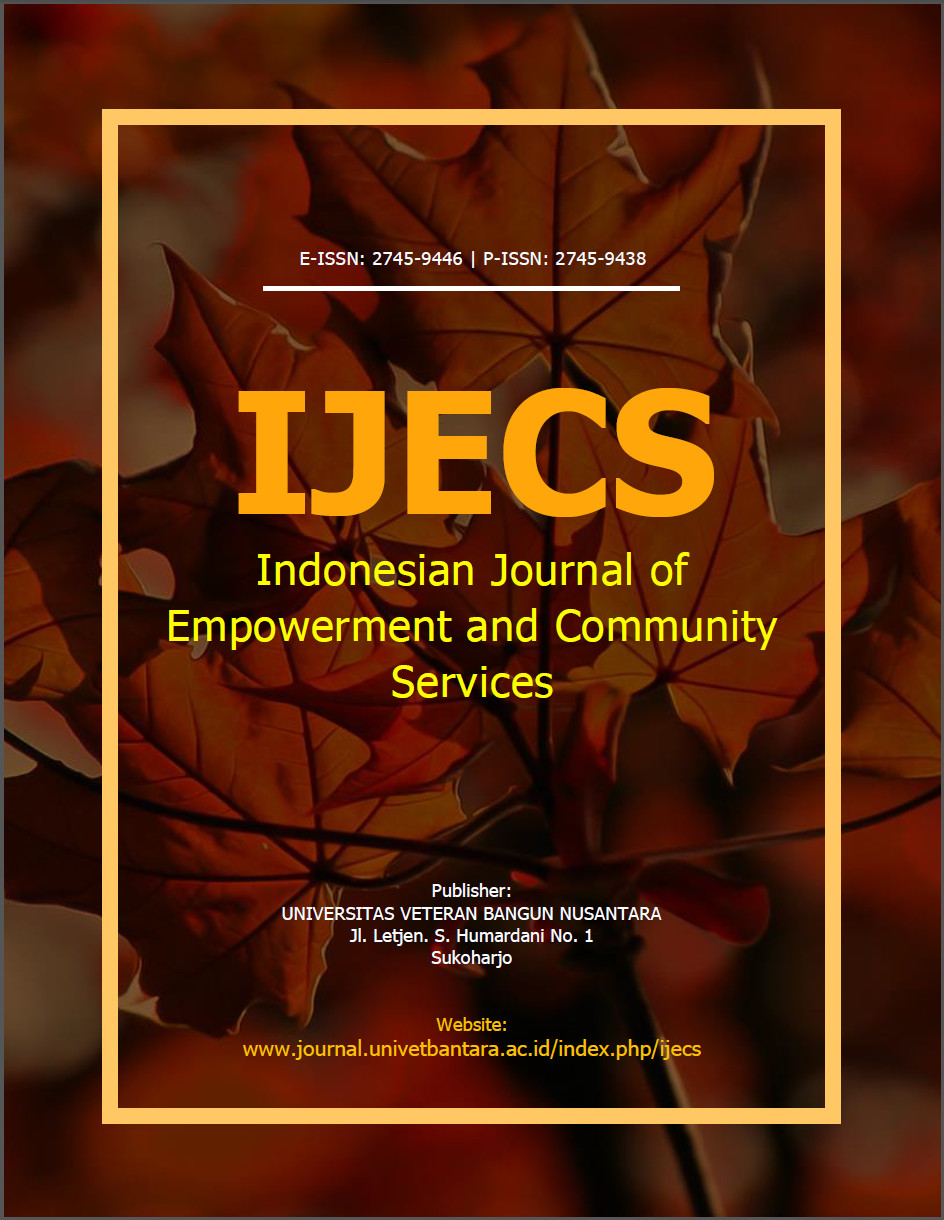Utilization of Chicken Bone Waste into Calcium Fertilizer in SMK N 1 Mojosongo Boyolali
DOI:
https://doi.org/10.32585/ijecs.v6i2.6841Abstract
This community service activity was carried out with the aim of providing an introduction to the utilization of chicken bones waste, targeting Gen Z in this case students of SMK Negeri 1 Mojosongo, so that it can increase the motivation and interest of Gen Z in the waste management sector through interesting activities. The existing activity method is carried out by holding counseling or socialization and training. This community service activity was attended by 28 students of SMK Negeri 1 Mojosongo, Boyolali, Department of Plant Production Agribusiness. The participants were given material as the first stage of counseling or socialization, then continued with the second stage, namely training with the practice of making calcium fertilizer. The provision of a questionnaire to improve student abilities was carried out to measure the increase in student understanding regarding the manufacture of calcium fertilizer. The results obtained showed an increase in student understanding of 64.22%.
Downloads
Downloads
Published
How to Cite
Issue
Section
License
Copyright (c) 2025 Muhammad Fathul Anwar, Agung Setyarini, Yos Wahyu Harinta

This work is licensed under a Creative Commons Attribution-ShareAlike 4.0 International License.
Authors who publish with the IJECS: Indonesian Journal of Empowerment and Community Services agree to the following terms:
- Authors retain copyright and grant the journal the right of first publication with the work simultaneously licensed under a Creative Commons Attribution License (CC BY-SA 4.0) that allows others to share the work with an acknowledgment of the work's authorship and initial publication in this journal.
- Authors are able to enter into separate, additional contractual arrangements for the non-exclusive distribution of the journal's published version of the work (e.g., post it to an institutional repository or publish it in a book), with an acknowledgment of its initial publication in this journal.
- Authors are permitted and encouraged to post their work online (e.g., in institutional repositories or on their website) prior to and during the submission process, as it can lead to productive exchanges, as well as earlier and greater citation of published work.





